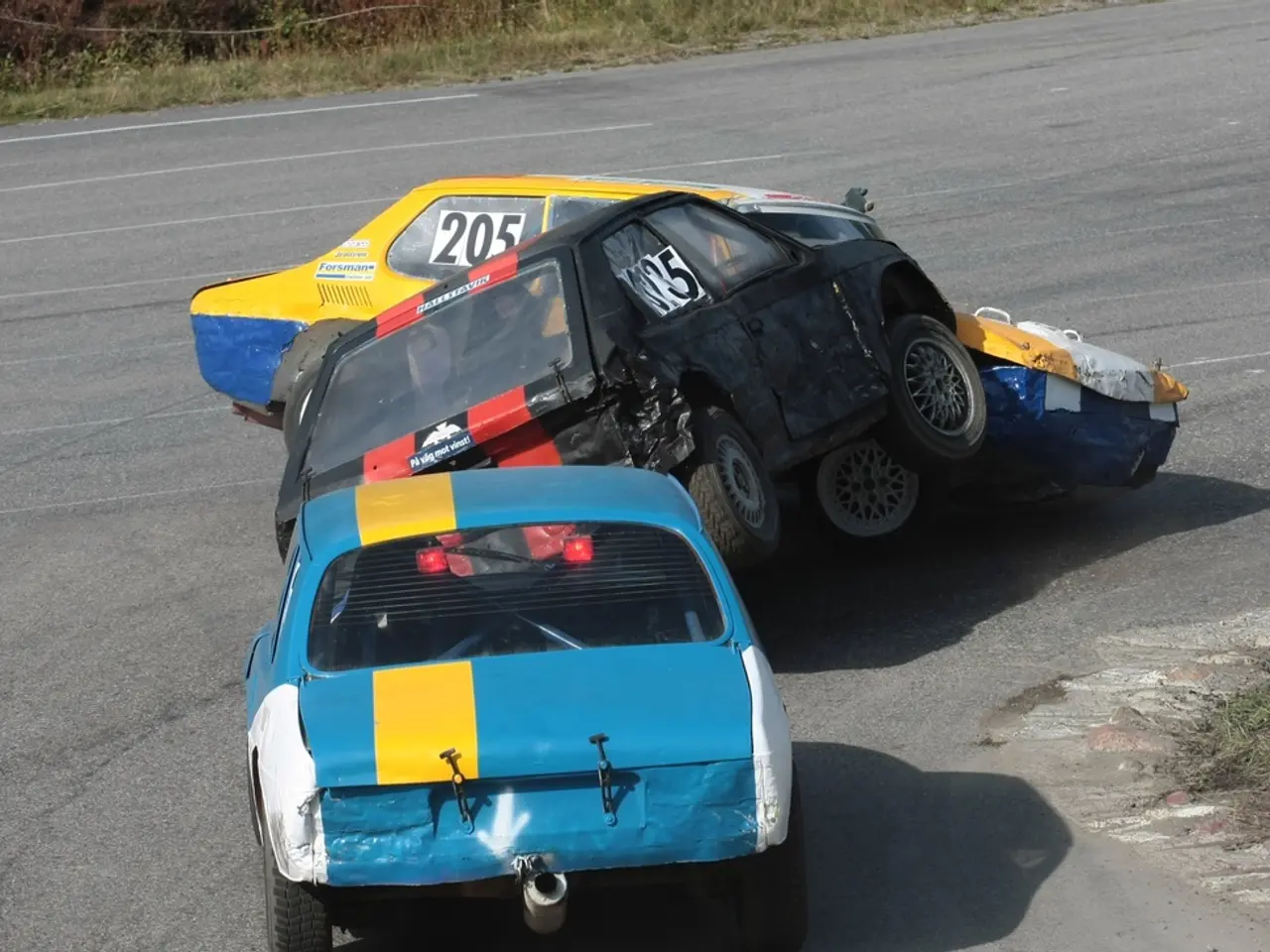Tesla and their driver-assistance tech face trial in a court case in Florida
Tesla's driver-assistance systems, Autopilot and Full Self-Driving (Supervised), are currently under intense legal and regulatory scrutiny. The focus of the disputes revolves around the safety performance of these systems and whether Tesla has overstated their capabilities.
Six years ago, a video was posted by Tesla that appeared to show a car driving on its own with the caption stating the driver was not doing anything. However, a senior Tesla engineer later conceded that the video was staged and did not represent the true capabilities of the car [1].
As of mid-2025, Tesla faces multiple ongoing lawsuits and a significant regulatory challenge. One such lawsuit involves the fatal crash of a Tesla Model S near Key Largo, Florida, in April 2019. The crash killed 22-year-old Naibel Benavides Leon and severely injured Dillon Angulo. George McGee, the driver of the Tesla, had engaged the Autopilot system before the crash. The impact of the crash killed Naibel, who was standing next to the parked Chevrolet Tahoe [2].
Lawyers for the plaintiffs in the Florida case accuse Tesla of withholding data produced by the Tesla Model S during the crash, a claim Tesla denies. The lawsuit alleges that Tesla's driver-assistance systems are dangerous and that the company exaggerates their capabilities [3].
Tesla defends itself by emphasising that it has always included warnings that these systems require active driver supervision and do not make the vehicle fully autonomous. Tesla changed the terminology over a year ago from "Full Self-Driving Capability" (FSDC) to "Full Self-Driving (Supervised)" to clarify this [4].
Regulatory authorities and state agencies are also scrutinising Tesla. California’s Department of Motor Vehicles (DMV) sued Tesla in 2022, accusing the company of false advertising by overstating the capabilities of its Autopilot and Full Self-Driving features, misleading consumers into believing the vehicles are more autonomous than they are. The DMV is seeking to suspend Tesla’s license to sell cars in California for at least 30 days and seek monetary damages [2][3][4].
The National Highway Traffic Safety Administration (NHTSA) has also opened multiple investigations into Tesla's driver-assistance systems. In 2023, the NHTSA recalled about 2.3 million Tesla vehicles for Autopilot issues related to failing to alert inattentive drivers [5]. There’s an ongoing investigation into whether Tesla adequately fixed these problems after claiming to do so. Moreover, CEO Elon Musk has been warned by federal regulators against implying that Full Self-Driving enables full autonomy, due to the risk of driver overreliance potentially causing crashes and deaths [1][3].
Despite the ongoing challenges, Tesla insists that its cars are safe as long as drivers remain attentive. In a post from 2023, Tesla stated on X, the social media platform owned by Tesla CEO Elon Musk, that the data strongly indicates their customers are far safer by having the choice to decide when it is appropriate to engage Autopilot features [6].
Elon Musk publicly defended Tesla's safety record at a shareholder meeting last June, noting that roughly 40,000 people are killed every year on U.S. roadways and that what matters is whether Tesla is making that number smaller [7].
The federal jury trial for the lawsuit brought by Angulo and the Benavides family is set to start on Monday in Miami, and is scheduled to last three weeks [8].
References
- Tesla engineer admits 2016 video showing car driving itself was staged
- Tesla faces lawsuit over fatal Florida crash involving Autopilot
- Tesla sued by California DMV over false advertising of Autopilot and Full Self-Driving features
- Tesla changes terminology for Full Self-Driving Capability to Full Self-Driving (Supervised)
- NHTSA recalls 2.3 million Tesla vehicles for Autopilot issues
- Tesla claims data shows customers are safer with Autopilot
- Elon Musk defends Tesla's safety record at shareholder meeting
- Federal jury trial for Tesla lawsuit over Florida crash set to start
- In response to the ongoing disputes about the safety performance and capabilities of Tesla's driver-assistance systems, the company changed the terminology from "Full Self-Driving Capability" (FSDC) to "Full Self-Driving (Supervised)" to clarify the need for active driver supervision.
- The National Highway Traffic Safety Administration (NHTSA) has investigated Tesla's driver-assistance systems, recalling approximately 2.3 million Tesla vehicles in 2023 for Autopilot issues related to inattentive driver alerts.
- In 2022, California’s Department of Motor Vehicles (DMV) sued Tesla for false advertising, claiming the company overstated the capabilities of its Autopilot and Full Self-Driving features, potentially misleading consumers.
- Tesla faces a federal jury trial in Miami starting on Monday, with the lawsuit brought by Dillon Angulo and the Benavides family involving a fatal crash of a Tesla Model S near Key Largo, Florida, in April 2019.
- Elon Musk defended Tesla's safety record at a shareholder meeting last June, noting a lower number of fatalities on U.S. roadways with Tesla's vehicles compared to the average of 40,000 annually, emphasizing the importance of active driver supervision when using Tesla's driver-assistance systems.




